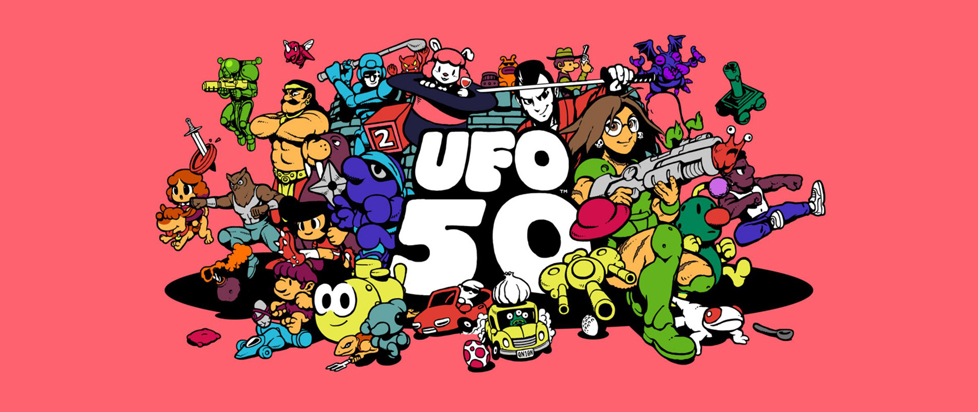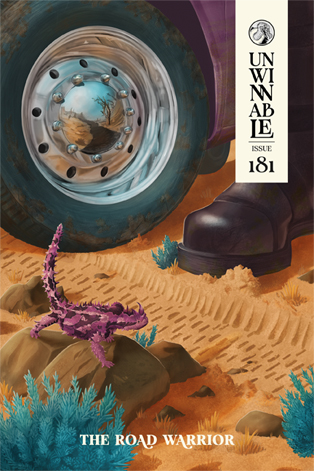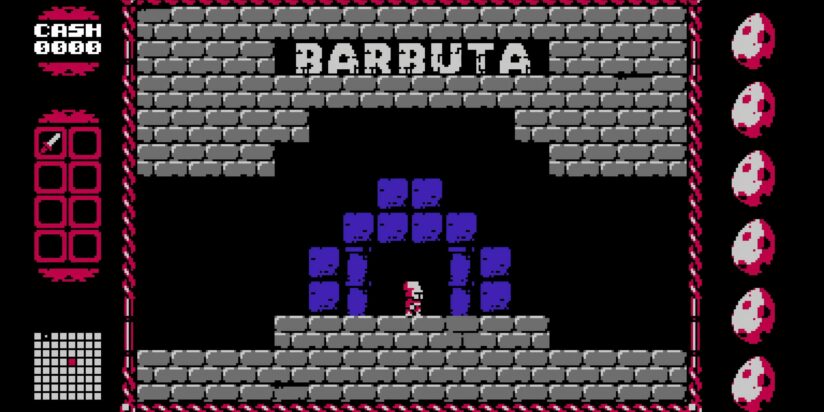
UFO 50 Serves Perfect Slices of Nostalgia

This column is a reprint from Unwinnable Monthly #181. If you like what you see, grab the magazine for less than ten dollars, or subscribe and get all future magazines for half price.
———
Wide but shallow.
———
The first game in the library of UFO 50’s fictional software company punishes you for walking right. Barbuta is about exploring a castle that resists exploration, and from the first step you are told to look out for what doesn’t appear to belong. If the player doesn’t catch that one of the floor bricks is a shade off from all the others, the player gets squished, and if they laugh, then they are ready.
UFO 50 is a collection of 50 individual games, produced by a fictional software company working from 1982 through 1989 with a nearly period-correct set of limitations in graphics, sound and controls limited to a directional pad and two buttons, technically fewer than even the original NES controller. The games are initially listed in order of “release date,” and each disk is dark with dust until you select it for the first time and clean it up. If one plays in this order, they are meant to understand a kind of progression of game design and evolution of aesthetics, which certainly exists, but it all serves an ideal nostalgia that does more than replicate a well-established past.
It’s hard for me to consider the effectiveness of this approach for people who didn’t grow up in that era, because I was both steeped in those videogame salad days and am now standing with an apple on my head in view of nostalgia’s perfect aim. So, I am feasting on this delicious bait, and have been for some time with other games operating in the retro/nostalgic zones, but by toying with a few additional layers of meta-narrative furthering the feelings of playing games at that time (a Game Genie-like terminal for entering codes found [or dreamed up I suppose], sequels to previous entries, and cameos across various games within) UFO 50 sets itself apart.

To be honest though, I’m behind. I’ve not even put significant time in the top row, for multiple reasons, not the least of which is that I hope to sup for some time on this spread. So, for that is proving true, as I enact a perverse self-interested cosplay as a child of a time where your available options for videogames and much else was limited to your meager personal collection, a few video rental stores and the library. My local library had the best options, but you still chose games based on barely related cover art as well as static and undersized screenshots, and whatever you brought home was the extent of things for 48 hours or so.
Barbuta is the kind of game that most Steam ghouls would perhaps buy, wring out for half an hour, and request a refund. Such is their right. But back in the day you would be stuck with Barbuta and you would get your money’s worth. It’s a game that reads as cruel for impatient players, though in reality it is watertight and funny as hell. You are a knight making your way through a very hostile environment, with no soundtrack and few meaningful clues. Movement is slow and jumps are heavy, your sword is short and armor nonexistent. But despite all this the game flows like water, pushing you along as you chip away at the secrets and ideally trade stories on the playground (Discord servers) without having too much just laid out before your eyes.
Every other game so far is a variation of these foundations – very little meaningful information provided to the player so as to encourage experimentation with buttons and strategies. Sometimes this means things are too obtuse or subtle but there’s no shame in calling the hotline (your preferred non-AI search engine) for a nudge in the right direction. UFO 50 is a space for discovery, delight and surprise, and it succeeds at this with every turn. And ultimately, if something doesn’t fly for you, that’s part of the experience as well. It’s almost as fun hearing how other folks completely devour a game you maybe just couldn’t get behind. Their enthusiasm can be a new way in, which is how nostalgia is best spread around, like a rock star rumor running rampant from coast-to-coast in the days before dial-up.
———
Levi Rubeck is a critic and poet currently living in the Boston area. Check his links at levirubeck.com.




